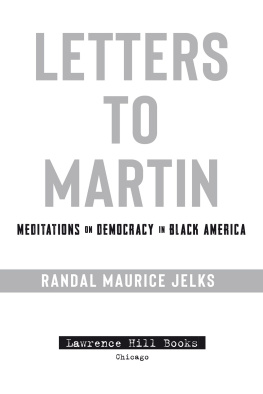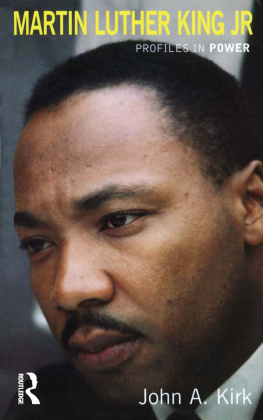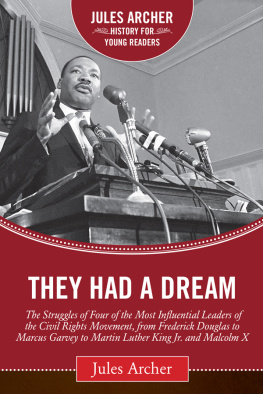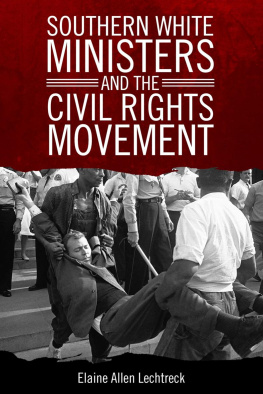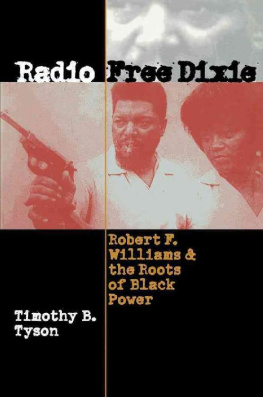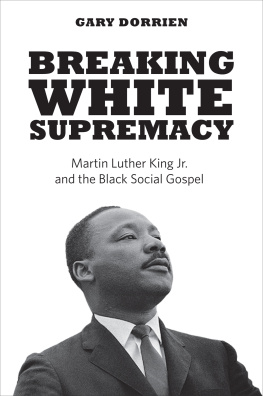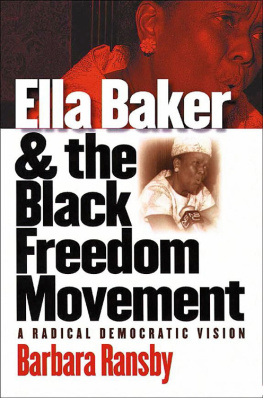Benjamin Mays and Martin Luther King Jr. at the Morehouse College
graduation, 1957
Benjamin Mays seated next to Sammy Davis Jr.
at the March on Washington
Acknowledgments
In the fall of 1994 this book began as a paper I presented at the centennial celebration of Benjamin Elijah Mays at Bates College in Lewiston, Maine. That paper, thanks to Dr. Lawrence Carter, dean of the Martin Luther King, Jr., International Chapel at Morehouse College, was subsequently presented at Morehouse and then published in his edited volume titled Walking Integrity: Benjamin Elijah Mays, Mentor to Generations. At that time, I did not know that it would take me nearly seventeen years to complete this book. In the meantime, I published African Americans in the Furniture City: The Struggle for Civil Rights Grand Rapids. A part of my research for that book led me to explore the neo-abolitionist community of Grand Rapids, Michigan, after the Civil War, which brought my attention to Reverend Samuel Graves, who in 1885, after leaving the pastorate of a highly esteemed congregation, the Fountain Street Baptist Church in Grand Rapids, became the second president of Atlanta Baptist Seminary for Men (today Morehouse College). As a result of Gravess ties and leadership, Morehouse received financial support from Baptist churches in Grand Rapids. Under his leadership (188590), the college settled in its present location, a Civil War battle site on the west side of Atlanta. In 1889, out of respect for Gravess work in resettling the college and seeing to its smooth operation, Graves Hall, the oldest building on Morehouses campus, was dedicated. From there, the work of teaching young black men has continued for one hundred and forty-four years. No one could have predicted that a book on Grand Rapids, Michigan, would be linked to an intellectual biography of Benjamin Elijah Mays, Morehouses sixth and perhaps most illustrious president, but the stars aligned and my research connected me to Mays with the help of so many along the way.
This book would not have come into being without collaboration from archivists, deans, colleagues, editors, friends, family, institutes, librarians, and students. My work would not have been possible without the wise counsel and generosity of Dr. Orville Vernon Burton of Clemson University (formerly of the University of Illinois). It was providential meeting this great soul and scholar from Ninety-Six, South Carolina, near the hamlet of Epworth, where Mays was born. Vernon has been a mentor, a friend, and guide throughout the development of this project. He shared with me his research on Mays and South Carolina that he had filed away after writing the introduction to the reissue of Mayss autobiography Born to Rebel. Burton and his wife, Georgia Ann, opened their home to me both in Illinois and in South Carolina on numerous occasions. Dr. Darlene Clark Hine of Northwestern University, my graduate school mentor and friend, also deserves special recognition. I cannot thank her enough for the letters of support and her generosity toward me. I hope in some small measure this book is a return on her investment. Dr. Dennis Dickerson of Vanderbilt University, whose scholarship and friendship aided and abetted me in both of my book projects, has offered constant support as friend, mentor, and thorough critic. I could not have written this or my first book without his aid and generosity.
The manuscript was vetted by a host of scholarly friends whose criticism made this a better a book: the anonymous readers for UNC Press; Wallace Best, Princeton University; Jane Dailey, University of Chicago; Allison Dorsey, Swarthmore College; my lifelong friend Walter Fluker, Boston University; Glenda Gilmore, Yale University; Maryemma Graham, University of Kansas; Willie J. Jennings, Duke University Divinity School; Ralph Luker, historian, blogger, and independent scholar; Barbara Savage, University of Pennsylvania; Beth Barton Schweiger, University of Arkansas; and R. Drew Smith, Morehouse College.
Other scholars freely shared their research with me: Yolanda Smith of Yale Divinity School, Winston Grady-Willis, formerly of Syracuse University and now at Skidmore College, and Bobby Donaldson of the University of South Carolina.
My former employer, Calvin College, from the first day I stepped on its campus in 1992 supported this book. I am grateful for the totality of the colleges support: the Alumni Board, the history department, the dean of Scholarship and Research, the provosts office, the office of development, and the Calvin Library and Information Technology staffs.
I have also benefited from the largesse of a Louisville Institute summer stipend that allowed me time off to travel to Washington, D.C.; New Haven, Connecticut; Madison, New Jersey; Terrytown, New York; and Atlanta, Georgia, to research this book during the summer of 2001. This book also benefited from the scholarly community of the National Endowment for the Humanities Summer Seminar 2006 held at Harvards W. E. B. DuBois Institute for African and African American Research, led by Patricia Sullivan and Waldo Martin. My colleagues in this group thoroughly enhanced my understanding of the wider implication of the civil rights movement from a global perspective. This book was magisterially enhanced during a wonderful year of scholarly engagement and dialogue during the academic year 20062007 at the National Humanities Center (NHC), in Research Triangle Park, North Carolina, where I was a Rockefeller Foundation Fellow. My gratitude goes out to the entire NHC staff, who supported me and my fellow scholars. Also during my year as a NHC fellow, my life was enlivened by the graciousness of the Jennings householdWillie, Joanne, Njeri, and Safiya. Church, Sunday dinners, and jazz concerts were a delight. I am grateful as well to my dear friend Dr. Rhonda Jones, a fine scholar and an outstanding public historian who teaches at North Carolina Central Universitys history department, who introduced me to the scholarly and cultural amenities of Durham and Chapel Hill. Tuesday evenings over drinks in repartee with Rhonda, Bayo Holsey of Duke University, and other friends in Durham made me a more civilized human being.


